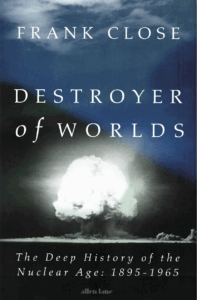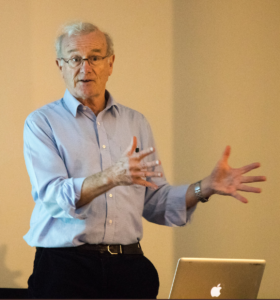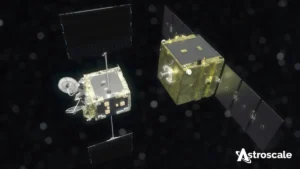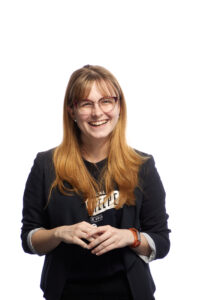09/2025: Oxfordshire Dinosaur Tracks – Dr. Duncan Murdock
Tuesday 16th September 2025 from 19:00 for 19:30
Abingdon United Football Club (Northcourt Rd, OX14 1PL, Abingdon)
Speaker: Dr. Duncan Murdock
08/2025: Granny’s had a Stroke; shall we call the Doctor? – Dr Andrew Molyneux
Tuesday 19th August 2025 from 19:00 for 19:30
Abingdon United Football Club (Northcourt Rd, OX14 1PL, Abingdon)
In this talk, Dr Molyneux will describe how, in recent years, there has been a revolution in the treatment of stroke due to blockage of a large blood vessel in the brain. Techniques to remove the clot through the blood vessels have revolutionised treatment for some types of stroke.
Speaker: Dr Andrew Molyneux
Dr Molyneux is an experienced interventional neuroradiologist who trained and worked mostly at Oxford’s Radcliffe Infirmary, specialising in the treatment of brain haemorrhage from aneurysms through the blood vessels and research into all aspects of stroke treatment.
07/2025: Destroyer of Worlds – Professor Frank Close
Tuesday 22nd July 2025 from 19:00 for 19:30
Abingdon United Football Club (Northcourt Rd, OX14 1PL, Abingdon)
Please note the change this month from the 3rd Tuesday to the 4th Tuesday.
 Was Marie Curie really the greatest female physicist of the early 20th century? Could the atomic energy contained in a kilogramme of radium really drive a ship across the Atlantic? Did a traffic light near the Royal Institution really give Leo Szilard his idea of the chain reaction? And was Oppenheimer really the “father of the atomic bomb”? This talk reveals how Henry Becquerel’s accidental discovery, in 1896, of a faint smudge on a photographic plate sparked a chain of discoveries which would unleash the atomic age and reveals some of the myths that have grown around this saga.
Was Marie Curie really the greatest female physicist of the early 20th century? Could the atomic energy contained in a kilogramme of radium really drive a ship across the Atlantic? Did a traffic light near the Royal Institution really give Leo Szilard his idea of the chain reaction? And was Oppenheimer really the “father of the atomic bomb”? This talk reveals how Henry Becquerel’s accidental discovery, in 1896, of a faint smudge on a photographic plate sparked a chain of discoveries which would unleash the atomic age and reveals some of the myths that have grown around this saga.
Based on Frank Close’s new book, Destroyer of Worlds, the talk is the story of how pursuit of this hidden nuclear power source, which began innocently and collaboratively, was overwhelmed by the politics of the 1930s, and following devastation of Hiroshima and Nagasaki opened the way to a still more terrible possibility: a thermonuclear bomb, the so-called “backyard weapon”, that could destroy all life on earth – from anywhere.
Speaker: Professor Frank Close OBE FRS
 Frank Close OBE FRS is Professor Emeritus of Theoretical Physics at Oxford University and Fellow of Exeter College, Oxford.
Frank Close OBE FRS is Professor Emeritus of Theoretical Physics at Oxford University and Fellow of Exeter College, Oxford.
06/2025: Space Sweepers Get Set to Clean the Orbital Highway – Zoé Tenacci – CANCELLED
Tuesday 17th June 2025 from 19:00 for 19:30
Abingdon United Football Club (Northcourt Rd, OX14 1PL, Abingdon)
CANCELLED: Unfortunately, the speaker for this event is unwell and so this event is cancelled.
 One of the first companies in the world to focus on space sustainability, Astroscale has been working for over a decade on developing technologies to remove space debris and enable a circular economy in space. This talk will present how they go about removing debris from Earth’s orbits and creating a safer and more sustainable space environment, along with the latest technology and mission developments that Astroscale has been flying and working on.
One of the first companies in the world to focus on space sustainability, Astroscale has been working for over a decade on developing technologies to remove space debris and enable a circular economy in space. This talk will present how they go about removing debris from Earth’s orbits and creating a safer and more sustainable space environment, along with the latest technology and mission developments that Astroscale has been flying and working on.
Speaker: Zoé Tenacci
 Zoé is a senior engineer at Astroscale, who has been working for the past 5 years on space debris removal missions, developing concept of operations and spacecraft design for rendezvous and proximity operations. She previously worked on Earth observation missions at Airbus.
Zoé is a senior engineer at Astroscale, who has been working for the past 5 years on space debris removal missions, developing concept of operations and spacecraft design for rendezvous and proximity operations. She previously worked on Earth observation missions at Airbus.
